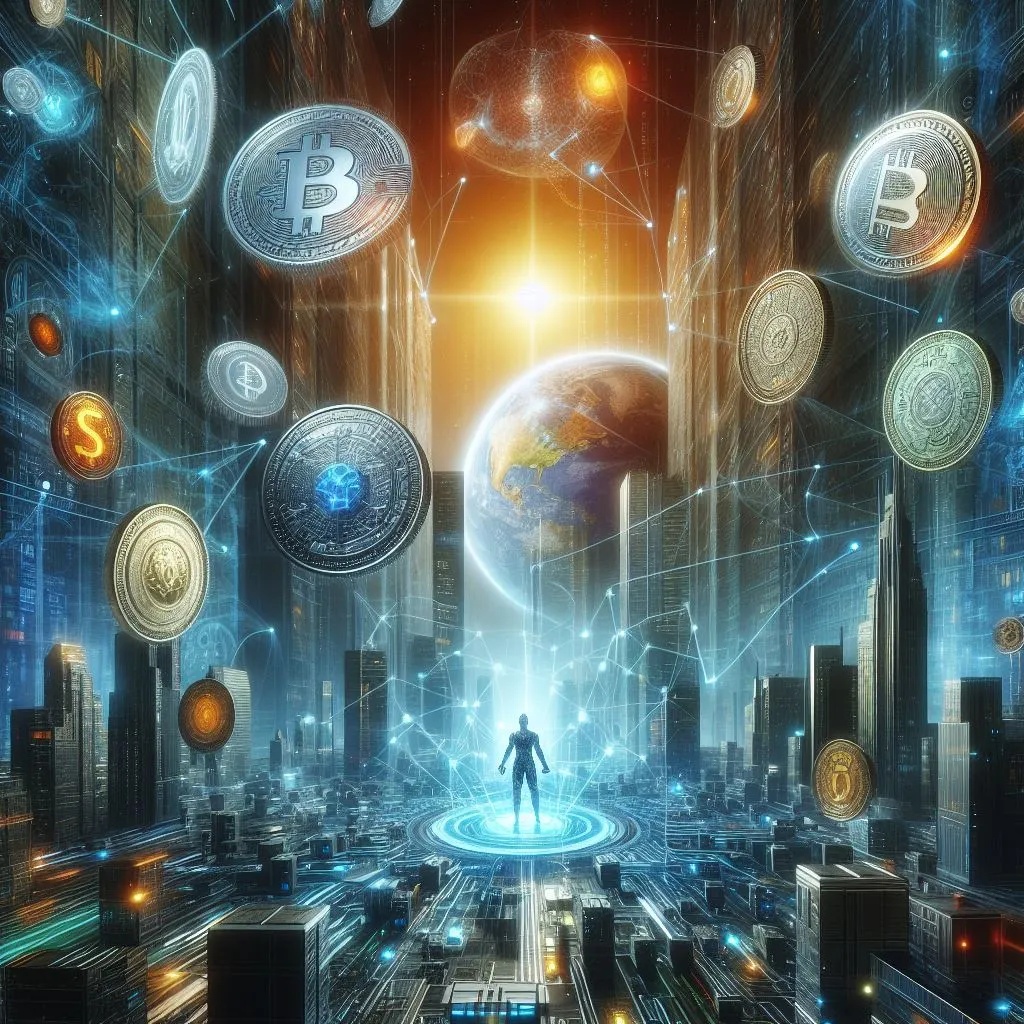In recent years, the concept of the Metaverse has captured the imagination of developers and creators worldwide. This virtual realm, where users can interact with each other and digital environments in real-time, presents a wealth of opportunities in the Metaverse for those savvy enough to harness its potential. In this blog, we'll delve into the various avenues for monetizing the Metaverse and explore the Metaverse development landscape, Metaverse economy, and Metaverse business models that are shaping this burgeoning industry.
Example Understanding the Metaverse
Before diving into the monetization strategies, let's first define what the Metaverse entails. The Metaverse is a collective virtual shared space, created by the convergence of virtually enhanced physical reality and physically persistent virtual reality. It's a digital universe where users can interact with a computer-generated environment and other users. Think of it as a combination of virtual reality (VR), augmented reality (AR), and the internet, all rolled into one immersive experience.

Exploring Monetization Opportunities
1] Virtual Reality Monetization
One of the primary ways developers and creators can monetize the Metaverse is through virtual reality experiences. VR technology allows users to immerse themselves in digital environments, opening up opportunities for developers to create and sell virtual goods, experiences, and services. From virtual concerts and events to immersive gaming experiences, the possibilities are endless.
2] Augmented Reality Revenue Streams
Augmented reality, or AR, offers another avenue for monetization in the Metaverse. By overlaying digital content onto the physical world, AR enables developers to create interactive experiences that blend seamlessly with users' surroundings. This opens up opportunities for location-based advertising, sponsored AR filters and lenses, and branded AR experiences.
3] NFTs in the Metaverse
Non-fungible tokens (NFTs) have taken the digital world by storm, and the Metaverse is no exception. NFTs represent unique digital assets that can be bought, sold, and traded on blockchain platforms. In the Metaverse, NFTs can take the form of virtual real estate, digital collectibles, in-game assets, and more. Developers and creators can capitalize on the growing demand for NFTs by creating and selling unique digital content.
4] Virtual World Commerce
Commerce in the Metaverse extends beyond traditional e-commerce models. In virtual worlds, users can buy and sell virtual goods and services, ranging from virtual clothing and accessories to digital art and virtual real estate. Developers and creators can monetize their creations by selling them directly to users or through virtual marketplaces within the Metaverse.
Harnessing the Power of Blockchain
Blockchain technology plays a crucial role in the Metaverse economy, providing a secure and transparent platform for transactions and asset ownership. By leveraging blockchain technology, developers and creators can create digital assets with provable scarcity and authenticity, opening up new possibilities for monetization and ownership in the Metaverse.
Digital Asset Trading
In the Metaverse, digital assets can be bought, sold, and traded just like physical assets in the real world. Whether it's virtual real estate, digital collectibles, or in-game items, there's a thriving marketplace for digital assets in the Metaverse. Developers and creators can capitalize on this by creating and trading digital assets that hold value for users.
Virtual Real Estate Investment
Virtual real estate is a booming market in the Metaverse, with users buying and selling virtual land and properties for substantial sums. Developers and creators can invest in virtual real estate and develop properties that attract users and generate revenue through rentals, events, and advertising.
Metaverse Marketing Strategies
Marketing in the Metaverse requires a unique approach that takes advantage of the immersive nature of virtual environments. Developers and creators can use branded experiences, sponsored events, and in-world advertising to reach their target audience in the Metaverse. By creating engaging and interactive marketing campaigns, they can drive awareness, engagement, and sales for their products and services.

Conclusion
As the Metaverse continues to evolve and expand, developers and creators have a unique opportunity to capitalize on its opportunities in the Metaverse and Metaverse development. By embracing innovative Metaverse business models and leveraging emerging technologies like blockchain, VR, and AR, they can unlock new revenue streams and create immersive experiences that captivate users and drive success in this exciting digital frontier.